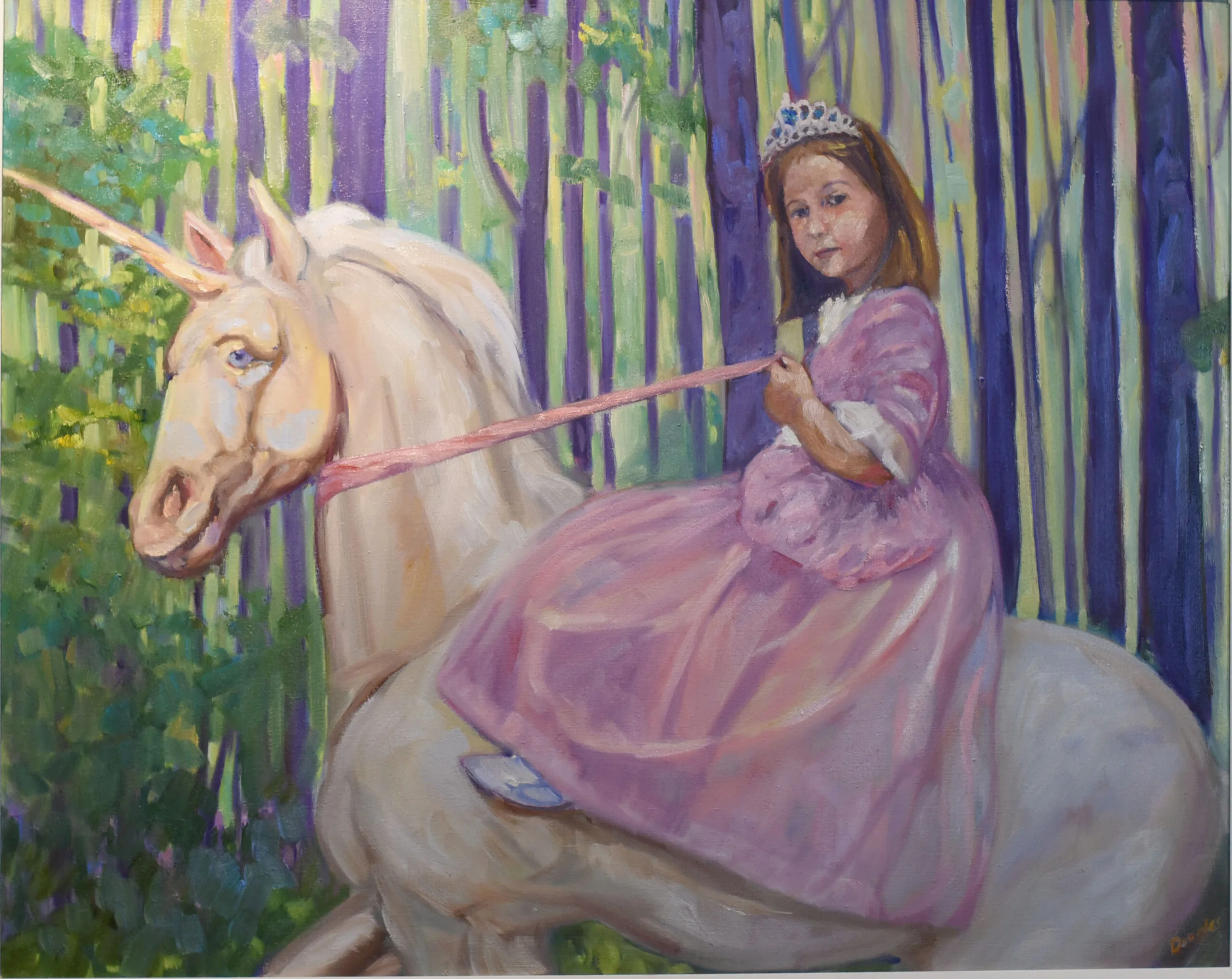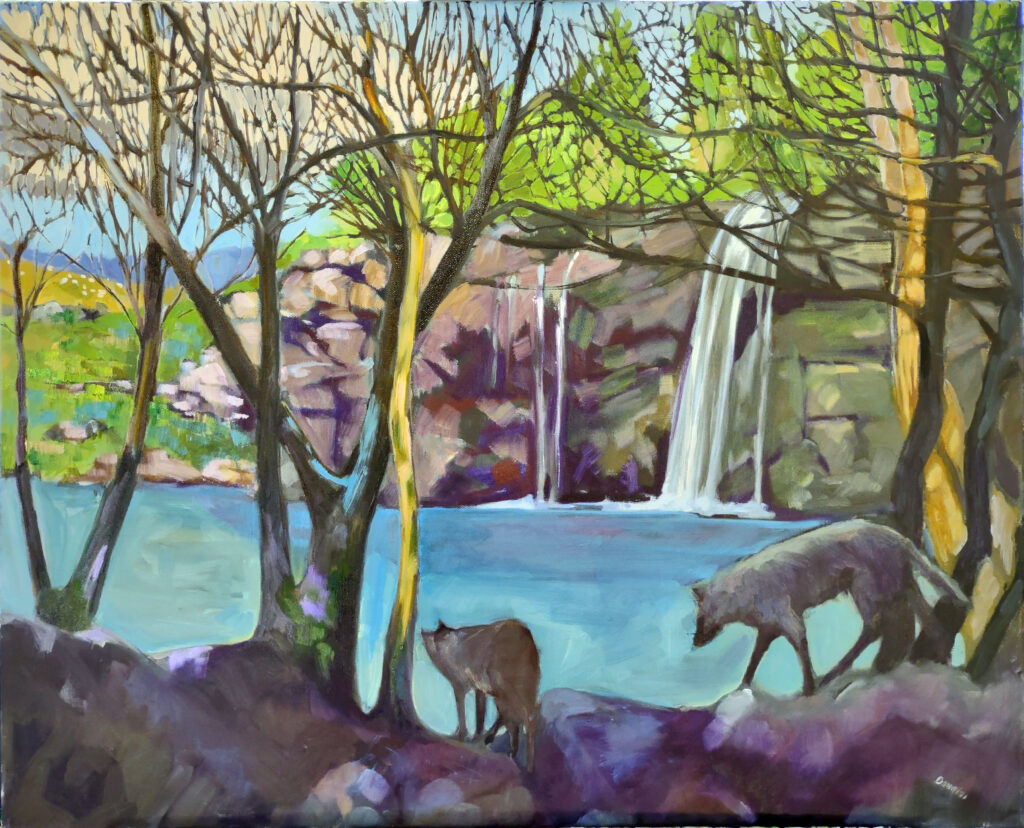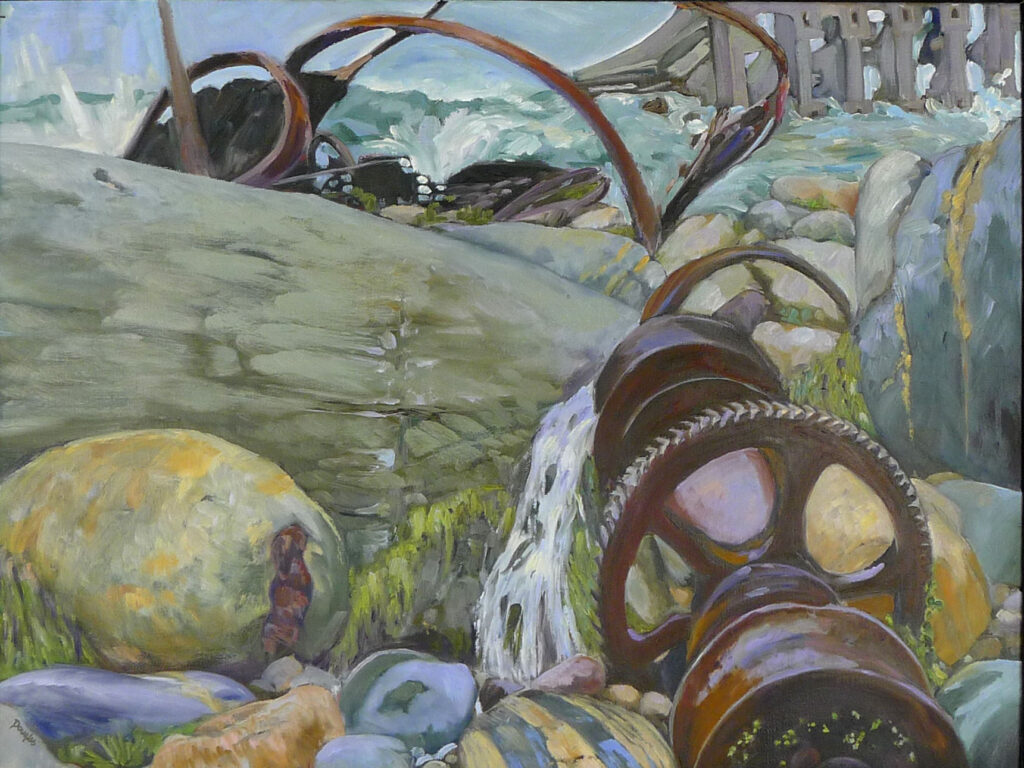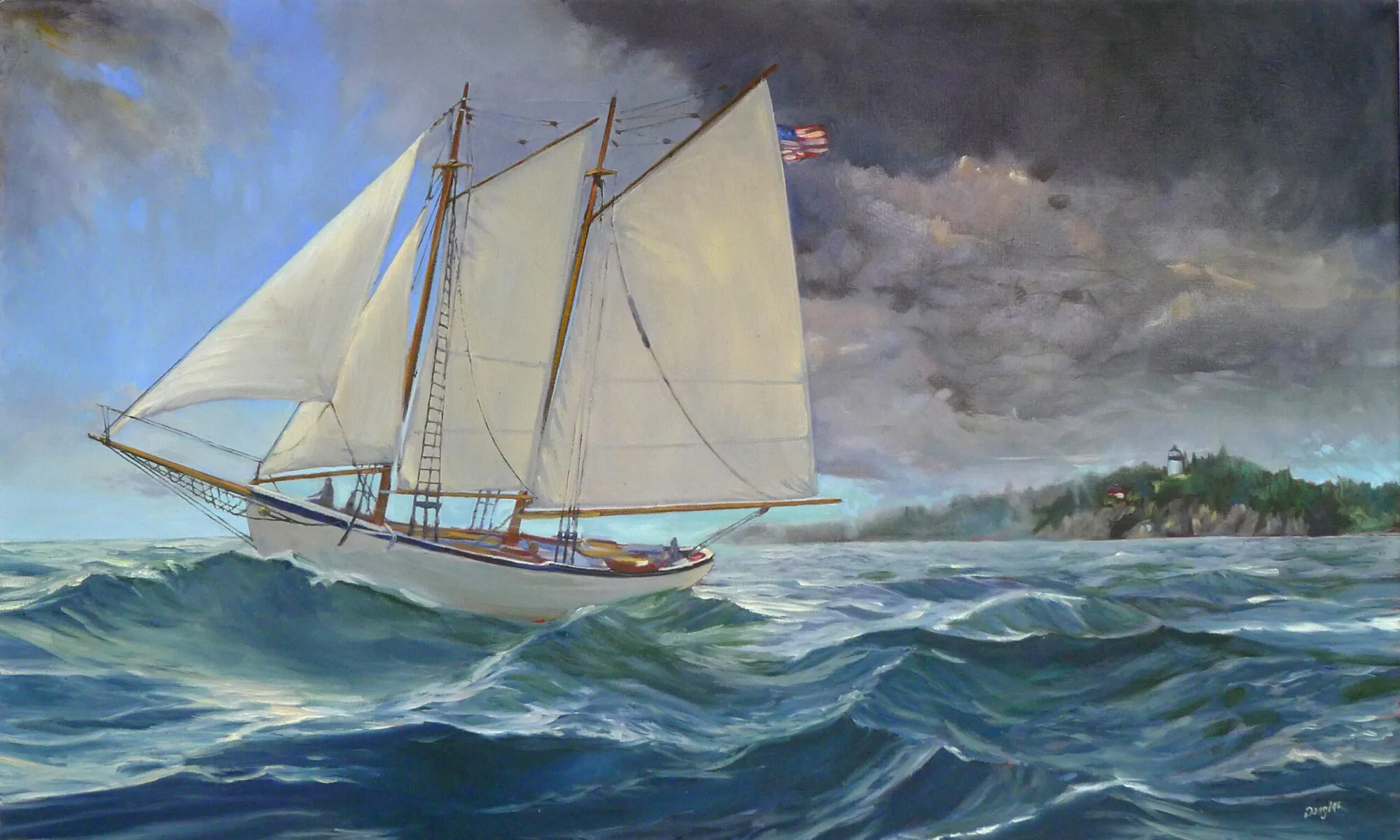
Yesterday I spent a few minutes considering a painting that went nowhere in a recent event. Perhaps I should have extended the dark around the wave to make the composition more obvious, I thought. And then stopped myself before I got into a cycle of self-doubt. At its worst, that can lead you to wrecking a perfectly good painting.
My painting has good color, good composition, good line, and good brushwork. That the juror (a fine painter herself) didn’t love it doesn’t reflect badly on the painting; it reflects her priorities in art.

It’s very difficult to not adjust your own thinking to group norms
I left Western New York in part because I can’t paint like a Hudson River School painter. It is a continuous tradition dating back two hundred years, and there’s absolutely nothing wrong with it. I admire it, but it’s not how I see the world.
There is a distinctive Maine style as well: higher in chroma, looser in execution, not as interested in modeling. It’s more painterly than linear. Not only do I like it better, it’s a better fit for me.
As long as I painted plein air in New York, I was subtly pushed toward painting like my peers. How does that happen? Galleries seek it out, jurors award it, painters you admire work that way. Above all, collectors buy it.

Why are we such suckers for group norms?
Human beings are social beings. We have a powerful need to belong. This makes us vulnerable to the influence of others. This is called normative social influence, or group norming, and it’s a powerful force in all social units from the family on up.
We’re herd animals. Group norming promotes social cohesion, which confers stability, safety, and harmony. But this cohesion has a cost, and that’s the sacrifice of individualism.
It can be extremely painful to be on the outs with your tribe. Whistleblowing is a prime example; it can lead to demotion, gaslighting, harassment, and the end of one’s career. Consider the story of Lindsey Boylan, the first woman to accuse Andrew Cuomo of sexual harassment. Cuomo was a star of Boylan’s own political party, the winner of an Emmy, the darling of celebrities and power brokers. Boylan was smeared in the press with the release of supposed confidential personnel records. Even Times Up leader Roberta Kaplan, nominally a spokeswoman for sexually-harassed women, colluded with the governor to discredit Boylan. It was not until five other women came forward with similar allegations that Boylan’s allegations were believed. And as recently as last week, there were fans of the ex-governor trying to whitewash her claims.
We give lip service to the idea of “thinking outside the box,” but in fact nobody much likes having their own pet prejudices challenged. Society routinely ostracizes those who dare to be different, and that’s as true in art as much as anywhere.

Knowledge is your best defense
This is where a good knowledge of art history proves useful. It allows you to see over the lip of the basket you live in, to see where you fit in the greater scheme of things. If you’re constantly feeling wrong-footed or inadequate, perhaps the problem isn’t with you, but your tribe.
Reserve your spot now for a workshop in 2025:
- Advanced Plein Air Painting, Rockport, ME, July 7-11, 2025.
- Sea and Sky at Acadia National Park, August 3-8, 2025.
- Find Your Authentic Voice in Plein Air, Berkshires, MA, August 11-15, 2025.
- Immersive In-Person Fall Workshop, Rockport, ME, October 6-10, 2025.

